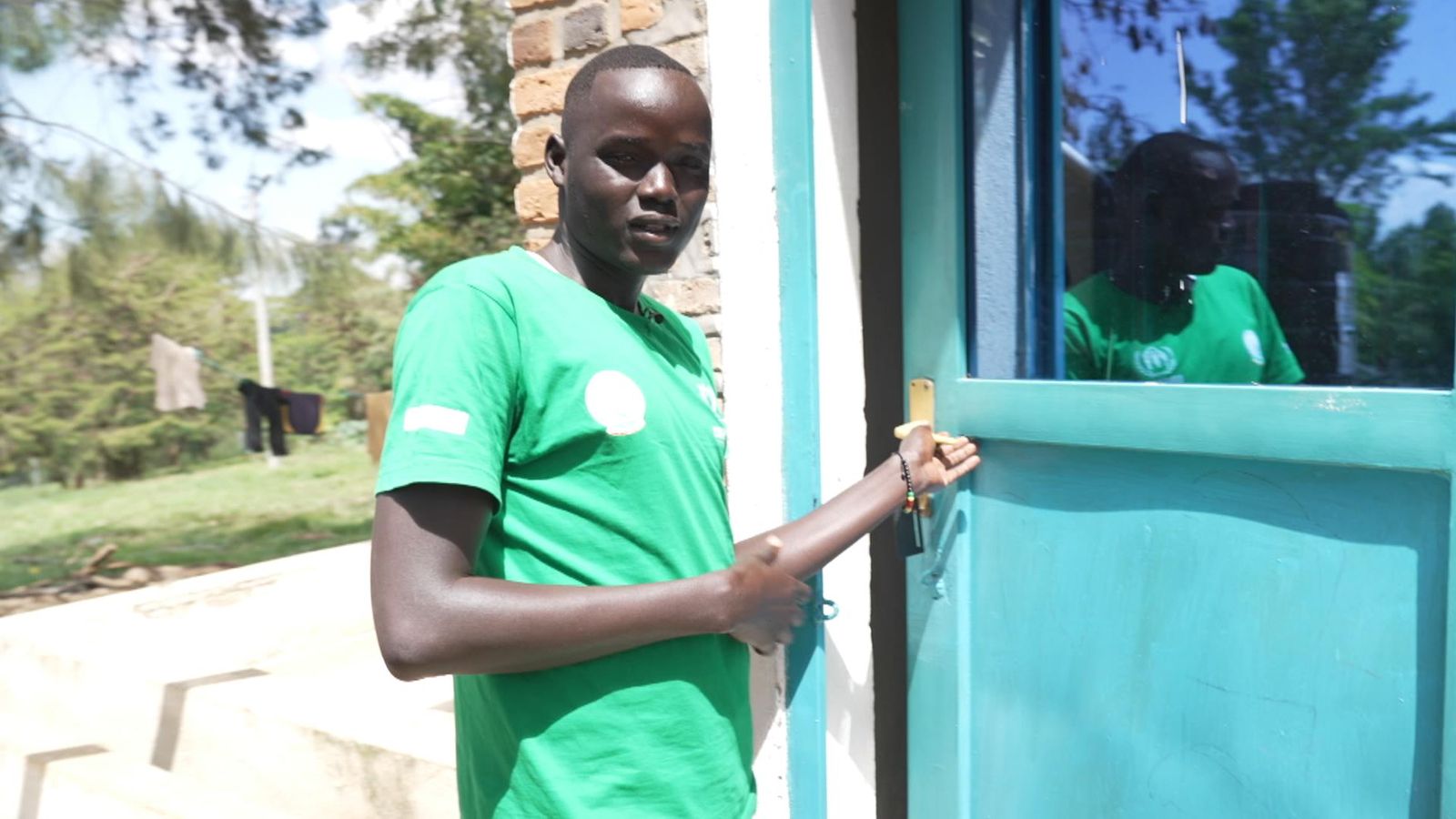More than 4,000 miles from the criticism and controversy of the proposal in Britain, Rwanda has spent weeks preparing for the arrival of asylum seekers from Britain.
This pristine, picturesque east African country, with its lush landscape and rolling hills, has accepted £120m to host the migrants.
People involved in the policy are determined to make it a success.
Once they land at Kigali International Airport, The Hope Hostel is where they’ll be taken to stay.
It’s a 50-room guest house surrounded by hills. The manager Ismail Bakina showed me how they’ve tried to make the place as homely as possible for when they arrive.
The rooms are filled with amenities, while there are computer labs, laundry rooms, and a games room.
Rwanda deportations: ‘Why must I go?’ – Channel migrants ‘nervous and unhappy’ ahead of flight
Rwanda deportation plan: First flight taking asylum seekers to African country can go ahead, says Court of Appeal
Migrant deportation plan: ‘It’s really hard to get work’; ‘I don’t feel safe’; ‘People here are so welcoming’ – What it’s like to be a refugee in Rwanda
Also notably, there is Arabic signage everywhere, a nod to the fact the asylum seekers arriving could be from the Middle East.
For good measure, he’s also included a gift shop, stocked with underwear and cigarettes.
His confidence is echoed by the Rwandan government representatives whose message is a simple one. “Just give us a chance.”
Outside of the Ministry of Foreign Affairs, their spokesperson Yolande Makolo told me: “These are people, so they have to be accommodated in dignified facilities and this investment ensures they get treated with respect.”
Please use Chrome browser for a more accessible video player
In a press conference later that day, she went on to draw parallels between bringing in asylum seekers from Britain to an already existing transit camp set up by the UN. A place we’ve also visited.
Gashora, is off the beaten track, 40 miles from Kigali.
Since 2019, it’s hosted more than 1,000 people, who evacuated there after trying to make the journey from Libya across the Mediterranean.
The people there have three choices. Go to a third country, like Sweden or Canada, return home, or stay in Rwanda.
So far, no one has chosen to stay in Rwanda.
‘If I was prepared to stay here, I better go back to Libya’
Peter, 29, fled torture at the hands of smugglers and his arms still bear the scars of the beatings they gave him.
He will soon be relocated by the UN to live in Finland, where he will pursue his dream of going back to school and becoming a lawyer.
For him, staying in Rwanda was never an option.
“If I was prepared to stay here in Rwanda, I better go back to Libya,” he said. “I will not do that, it will be a last mistake to do so.”
Read more:
Why are migrants being sent to Rwanda and how will it work?
‘Why must I go?’ – Channel migrants ‘nervous and unhappy’ ahead of flight
Prince Charles says Rwanda deportation plan is ‘appalling’
The organisations supporting the asylum seekers scheduled to arrive here from the UK say the people they are helping feel the same – but the difference for them is they have a one-way ticket.
Rwanda will be their destination. Meaning unless they go back to their country of origin, they will eventually have to build a new life here and find work.
That will be a challenge in a densely populated country with an unemployment rate five times that of the UK’s.
‘It’s a matter of survival’
One person whose experience could be like theirs is Gilbert, a refugee from Burundi who we met at his market stall.
Behind dark sunglasses in muted tones, he told me the stall isn’t just about trying to make money, it is a matter of survival.
He has been in the country for five years but never found stable employment.
“As a refugee, people don’t trust you when you’re looking for a job. They don’t trust you because you don’t share their nationality – it’s hard to get work,” he said.
‘We don’t feel like strangers here’
Across the city, in a trendy area filled with tree-lined, gated houses, we heard a very different story.
Sanaa, 39, arrived here three years ago with her husband after fleeing the war in Yemen.
She now has 15 employees working at the cafe they opened, and she is living happily in Rwanda.
She sees it as a land of opportunity.
“People here are so welcoming; we didn’t feel like strangers here. For sure it’s safe country. [Its] clean, and nice people.”
For the sake of this deal, the British and Rwandan governments will hope that the experiences of the people who come here are like hers, but it’s clear there is no guarantee of that.









